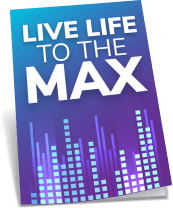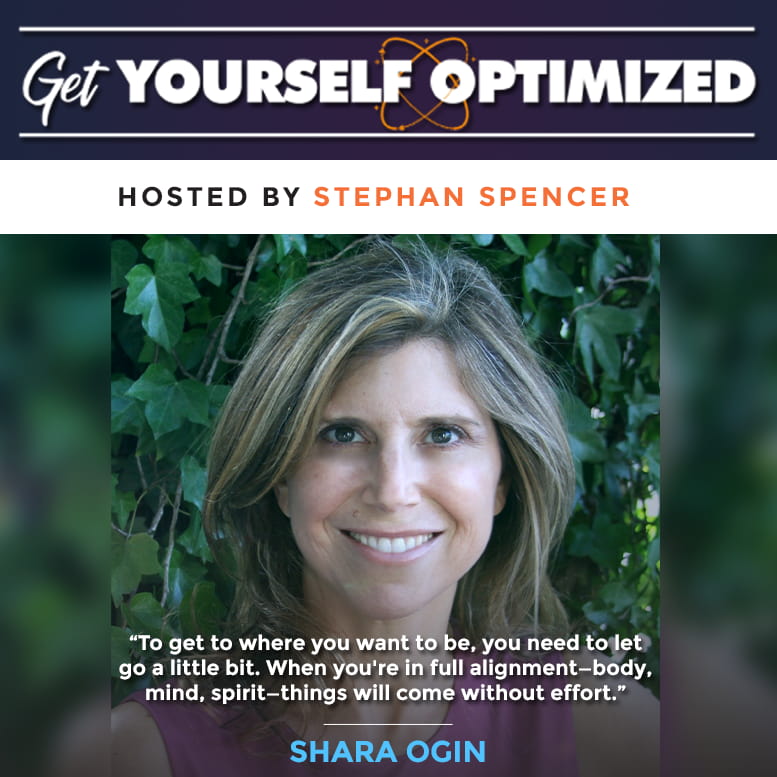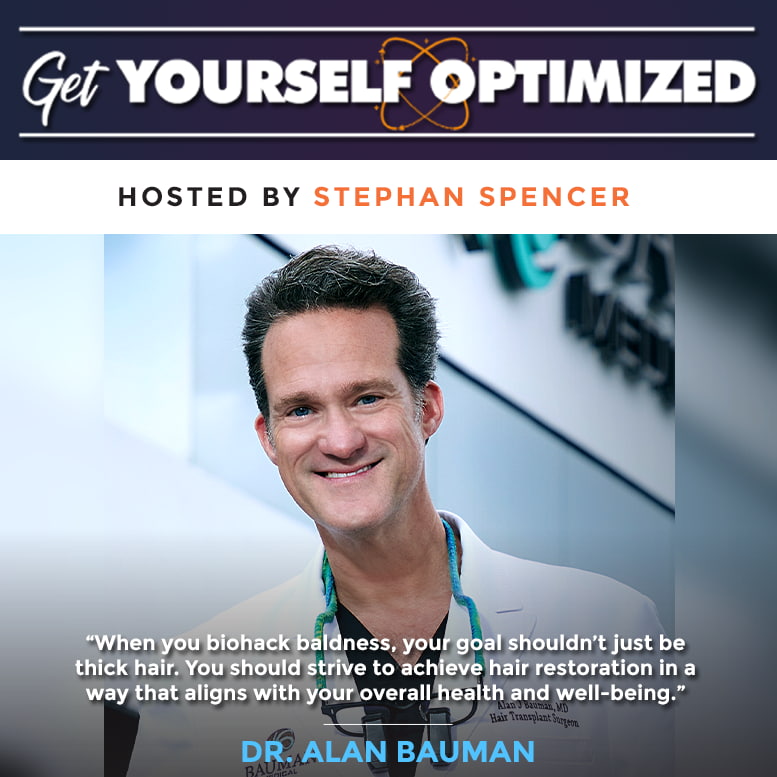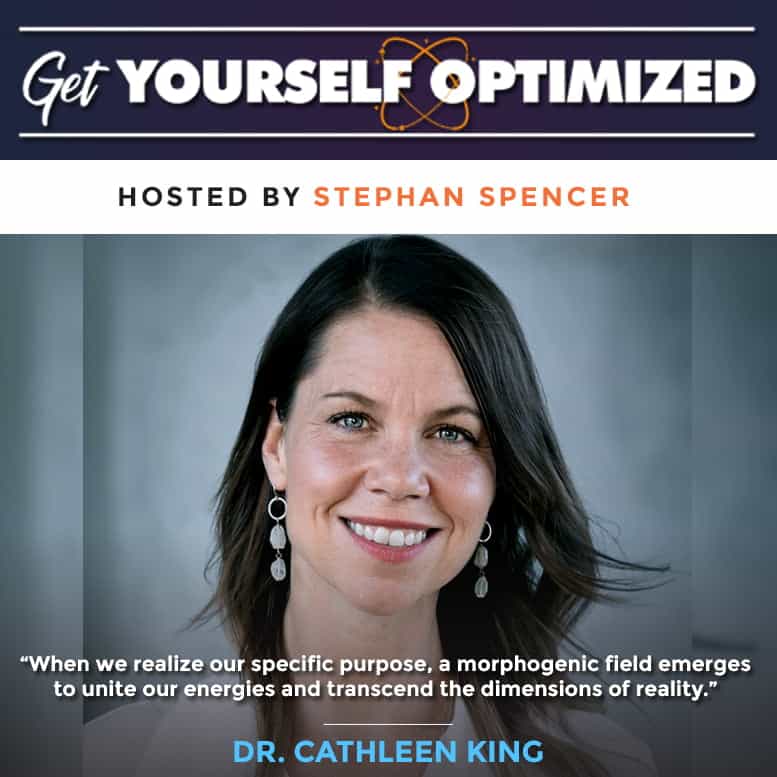In this Episode
- [00:09]Stephan introduces today’s guests, Joe Fier and Matt Wolfe.
- [03:24]Stephan appreciates Joe and Matt for being excellent in curating people, tools and ideas and describes them as mavens.
- [05:48]Joe and Matt share about their regimen in getting ready for a podcast, morning rituals and the preparations for going in front of people.
- [10:38]Stephan, Joe and Matt discuss validation, letting the doing happen, and taking pressure off yourself.
- [11:42]The discussion about the benefits of breathwork and how it works.
- [17:58]Joe and Matt talk about the Soma Breathing Technique that relieves anxiety in stressful situations and the Wim Hof Method of Breathing Exercises.
- [24:16]Stephan wants to know if there are other modalities or biohacks that Joe and Matt want to share with the listeners.
- [27:21]Joe and Matt emphasize helping destigmatize plant medicines and use them in a very methodological way.
- [31:04]Stephan asks about the concept of micro-dosing, which might be a potential game-changer for people suffering from anxiety and terminal illnesses.
- [32:42]The discussion about disconnecting from judgment and remaining open.
- [35:59]Matt and Joe talk about the different modalities of having breathwork and psychedelic experiences.
- [38:18]Stephan emphasizes getting vision at the right time with the proper guidance.
- [39:19]Matt and Joe discuss their methods of journaling gratitude, challenges that they encountered and how they combat them.
- [44:31]The examples of experiences meant for you that will show up in another way, no matter how many times you ignore it.
- [48:14]The insight of 80/20 rule being fractal.
- [49:51]Matt and Joe share their objective and metric of success that they are gearing towards at the moment.
- [51:55]Stephan asks Matt and Joe to share with the listeners their unique abilities.
- [54:13]Matt and Joe share their most favorite book and the books they recommend people to read.
- [57:55]Join the course PodHacker to build, grow, and scale a community around your podcast with a heavy focus on growth hacks.
Transcript
Joe, Matt, it’s so great to have you both on the show.
MW: Great to see you again. There are always these gaps, but you always bring in different perspectives and really cool questions. I love listening to your podcast, both of them. Thanks for having us back on.
Awesome. I just love you, guys. You guys are the real salt of the earth, really. Heart-centered. Good people. I appreciate you.
MW: Thank you. Likewise.
JF: Are you sure you’re just not talking about my hair though? Just kidding.
They’re very well-coiffed, yes. This isn’t the first time that we have had podcast conversations. I was on your show and you were on my other show. Actually, this is Get Yourself Optimized this time around. The first time you were on Marketing Speak.
Do not focus on the numbers; instead, focus on the message and the brand awareness. Click To TweetThis time we’re going to talk more about general business, personal developments, growing and cultivating a business, going from one business to another, and building a community, masterminds, and all that sort of good stuff. Whereas when we talked on Marketing Speak, things like podcasting and creating a tribe around your business, your marketing channels, and all that. That was fantastic stuff too. Now we’re going to take this to a different place in this conversation.
MW: This is fun. This is our stuff right here. I feel like where we take a lot of our conversations naturally.
JF: We do enjoy talking about marketing, but what really lights us up when you really hear us get into a flow is when we are talking more on the mindset, personal development, that kind of stuff. You definitely hear us light up over that stuff, even more so than the tactical stuff. We just love these conversations.
Yeah. You guys are awesome at curating people, tools, and ideas. I would even call you guys mavens, very
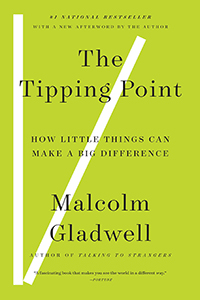
deliberate about that term because I learned the real meaning of it from Malcolm Gladwell from his book, The Tipping Point. There are salespeople, there are mavens, and there are connectors. You guys are connectors too, but I think you really shine as mavens.
JF: That’s a good distinction. I’m going to dive a little deeper into that after this episode now to really harness that understanding. You’re not the first one to say that.
MW: Well, not to turn the tables here. I’m curious, can you tell us what the definition of a maven is from the Malcolm Gladwell definition, from your perspective and from our perspective because I’m curious. I haven’t read that book, honestly.
The concept is somewhat similar to Jay Abraham‘s principle of preeminence where if the prospect is better served by being sent by you to the competition, you will do that because that’s how you operate. So being a maven, you curate the best stuff. You find the coolest tools and the most valuable resources. The right who’s to send people to get the how and the outcome that they’re after. Those mavens are like gold in people’s lives. They help almost serve as light posts or lighthouses like this is the path, go this direction, work with this team, hire this agency, get this tool. You guys are phenomenal at that.
MW: I appreciate that. Yeah, that is sort of the effort we’re making.
JF: It definitely is. I’m happy that’s how we’re seeing as well. I appreciate you saying that about us because, over the years, you mentioned curation and that is something maybe within the last year that Matt and I have really harnessed and realized.
We’ve actually mentioned that concept to Brian Kurtz recently on our podcast. He’s a legend in marketing and he was like curation, yes, that’s brilliant. He didn’t even think that I told him about our model, and kind of what he does as well through masterminds and presentations. Anyway, it’s curation and connections and all that stuff.
Think of things you wouldn't usually find gratitude for, and then figure out reasons to have gratitude towards them. Click To TweetI love Brian, by the way. I just have to say that. He was on my other podcast on Marketing Speak. Fabulous in our conversation. Fabulous. Listener, if you have any desire to learn anything about marketing, especially offline marketing, that is a fabulous episode.
I also spoke at his Titans Mastermind. That was such a great experience. It was virtual, but I’ve met some really, really cool people. The founder of Charity Water, for example. I chat with him, Scott, and he brings together good people. He’s a great curator as well for sure.
Now, I’m curious to hear what is your regimen for getting ready to do a podcast episode, getting ready to do a mastermind event, and getting ready to just tackle the day? What’s your morning ritual? What’s your prep for going on stage or in front of people? Because I’m sure you’ve dialed that in pretty precisely.
MW: I would say Joe and I, as far as morning routines, morning rituals, we’re definitely at different places in life so our morning rituals are going to be probably pretty different.
JF: You can kick it off though.
MW: My morning ritual—I get up at about seven-thirty in the morning. I do get up to an alarm. I used to pride myself on the fact that I don’t wake up to an alarm, but now I purposely get up to an alarm. It’s the same time my kids get up as well, so I usually get up and make a cup of coffee. I spend the first hour, hour and a half in the morning just hanging out with the kids. Maybe we’ll watch cartoons together or something and spend a little time doing that.
After I do that, I have a home office and I’ll usually go and sit down in my home office. I clear through emails first thing in the morning. That’s one of the things that I like to do. I don’t want to have to think about email for the rest of the day. I’m clearing through my emails at 8 to 9 in the morning. I make sure I have all of them cleared out.
I have a very, very simple morning routine that, just for the most part, includes hanging out with the kids, drinking coffee, and clearing through my emails before coming into the office.
Then I get in my car, drive over to the studio, then Joe and I start our day with whatever is on the agenda for the day. I have a very, very simple morning routine that just for the most part includes hanging out with the kids, drinking coffee, and clearing through my emails before coming into the office.
JF: That’s what I like about Matt. He just creates the white space like that. In my scenario, I have a 21-month-old, almost. She is up far too early. My alarm clock goes off typically around five-thirty in the morning.
MW: You have a random alarm clock. It goes off whenever it wants.
JF: Trying to extend the alarm clock. I wake up to her, but I love that. We love having a kid around because it’s given me more structure and thinking about things like this routine. In the morning, generally, my wife will hang out with her. That’s who she wants anyway, my daughter. I will spend that time to take some time for myself. This is where it’s an understanding with my wife and I that she’ll give me whatever time I want, but usually, it’s like 20-ish minutes or so.
Do some breathwork. I always like to do either a Wim Hof breathing. I know we’ve chatted about that, Stephan, and Laird Hamilton. His whole breathing and breathwork. I’ll do a surf like a ramp-up routine to wake me up because let’s be honest, I probably am not fully rested from the kid. That primes me. Usually a shower, I need that reset. That’s me creating myself some white space before I just jump into motion with a kid that runs around.
There’s a lot of action in the house for me in the morning. So resetting myself, hanging out, and spending a lot of quality time, usually a couple of hours with the family at least. Then I’ll do more of my clearing of emails and messages, all that stuff, typically here in the office where this is more of my quiet space. Then we just jump into action. That comes maybe an hour later.
MW: That’s by design. I clear through my emails in the morning from home. Joe comes in here because at home, I actually have a quiet space. It’s not as distracting.
It’s pretty rowdy.
MW: I do a little bit of work from home before I come in. Joe has this space that we’re in now for an hour or so in the morning to clear through whatever he needs to focus on. Then when I come in, all hell breaks loose pretty much.
That’s the part that we enjoy doing. It’s cool to have that response from someone that we respect so much.
JF: Yeah. In going to the preparation for anything, I think this office is a key element to our recent breakthroughs or successes. If you want to call them that because I think people are noticing more of our research now on our podcast.
Actually, I got to give you credit, you just introduced us to Dr. Cialdini. The very first thing he said was, I’m so impressed with the level of research you put into your episodes, the attention to detail, and the energy. That takes a lot of work. It does. That’s the part that we enjoy doing. It’s really cool to have that response from someone that we respect so much.
Yeah, the validation is helpful. Although, over time, you realize that the validation actually comes from above. You don’t need any. It’s on a daily basis. You just tune in and you get that validation, like, all right, I’m on the path. I’m doing the right thing. I’m doing what my soul’s mission is. It’s always a nice pat on the back to get it from the external world. But you don’t actually need it.
JF: It’s internal. Yeah. That brings up a point. I don’t want to go on a tangent, but I want to maybe circle back around if you’re open to it.
Yeah, please.
JF: Our struggle over the years, and even literally just yesterday figuring out, oh, yeah, we’re legit. This internal feeling between Matt and I, we’ve actually done some really cool stuff. We’re connected to amazing people that we’ve done a lot of stuff, and we don’t always give ourselves that credit. It’s folks like him when we get credit from someone we followed for years and respect. It’s that external reminder, I guess.
Yeah. You don’t really need it. I mean, it’s helpful, fun, and nice to get it. Even the numbers, the impact metrics, you don’t need them, but you’re helping the people that are meant to be in your tribe. I learned this recently. This is a really cool distinction.
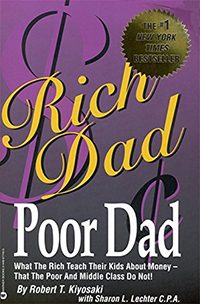
I’m taking a class on Akashic records. One of my past guests on this show, Anne Marie Pizarro, is teaching that class. One thing she said that really resonated is that you don’t have clients. You don’t have listeners, viewers, or visitors. You have an assigned group. That assigned group is preordained, predestined to intersect with you, your content, your message. Get it at the right time, divine timing, to make that shift that they need in their life, their business, their career, and their relationship. It’s a done deal. It was preordained before you even incarnated.
If you buy into that concept, it takes a lot of the pressure off because all right, I don’t have to hustle so much. I know Gary Vee is all into hustle. But the thing is you can burn yourself out. If instead you get into flow and you just know that, hey, this is in my vortex. It’s coming. It’s coming.
MW: The toughest part is remembering your understanding that you got it. We didn’t realize it for a long time. We experiment a lot, so we never know what the effects look like, I guess from the outside, but we feel it. We’re just having a good time. We’re going to do this.
JF: I think that’s a lot of what it comes down to is like we’re so just caught up in the doing that we never actually reflect on what has been done.
MW: That’s something I’ve been focusing myself on more is sitting into what is it that we’ve done. Letting the doing happen is more of a result of our being and really understanding that.
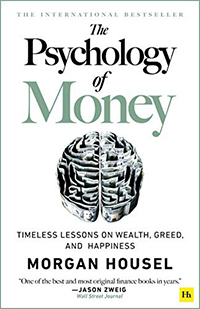
Yeah. That’s a great point, too. I learned this many years ago that we’re not human doers, we’re human beings. It really is in the beingness and not in the doing this that the living happens. If we take the pressure off, I don’t have to do everything. That’s not what my life is about. I can just be, then that’s where the synchronicities happen. That’s where the divine timing happens just like all the magic.
JF: Let yourself off the hook.
Very cool. Now, something I want to circle back to that you had mentioned, Joe, is the breathing.
JF: Yeah.
Sounds so simple, right? We do it automatically. We breathe. We’d be dead if we didn’t. Yet it’s so profound, important, impactful, and potentially life-changing. I just interviewed a few days ago an incredible breathwork healer, Kurtis Thomas. He is incredible.
One of my favorite things I learned from him wasn’t even about breathing in that episode. It was about making God your business partner, and that just blew my mind. This week, I set a prayer and I invited God to be my business partner. I know that might sound silly to some skeptics, probably not to the people who are listening because they know me by now that this is how I roll.
The most unlikely messengers bring the most profound messages. I was not expecting that. I didn’t even know what to expect. I just knew that this guy was legit. I knew that breathwork can be life-changing.

I didn’t really understand the distinctions for the different kinds of breathing. There’s Wim Hof, as you mentioned, Laird Hamilton has his approach. There’s just doing a quick somatic type ones. This is a fun one. I just learned this from my wife, Orion. She took Naam Yoga and she came home with this breathing exercise. It’s so simple and fast, and it just is revolutionary.
Let’s do it right now. All right. I’m just going to describe it first and then we’ll do it. You breathe in then you breathe in a little bit more, and then a little bit more. You keep holding, and then you tap, tap, tap on the upper chest with your fingers, tap, tap, tap, tap, tap, tap, tap, keep holding, keep holding, and then let it out. Okay, so let’s do it for real. Here we go.
Breathe in, a little more, a little more, hold, and tap, tap, tap, tap, tap. Oh, you can do that one more time. You can do that on your own. That is so energizing, isn’t it?
JF: What I felt is, it was almost like I sweat a little bit, almost like I broke out a little bit, but I actually felt my sternum pop in a good way. It was like, okay, my breath and chest and everything. Even though it started with my belly, it all opened up. It feels great.
MW: It feels great.
JF: That was really good.
We're so just caught up in the doing that we never actually reflect on what has been done. Click To TweetOccasionally, I would do this as an exercise at the beginning of a presentation. The people would look at me like I’m from outer space, like I’m at a marketing conference. It’s after lunch.
JF: It’s sometimes helpful to find a stall in the bathroom.
Yeah, you guys are not awake.
JF: The thing that breathing, it was Wim Hof for me that really stood out. I think it was my buddy, Ryan, who ironically is over here right now. I was doing a bunch of CrossFit training and learning about mobility, movement, and inefficiencies in my own body, which are still pretty jacked up. He’s probably nodding. But breathwork, I think it was The Iceman. There’s a cool documentary around him. So if you just watch that you’re like, wow, we are made for so much more. You can jump in the frozen water in the Netherlands in the middle of winter.
You prime your mind, prime your body, and have these routines, you can fight off things like disease to bacteria diseases or whatever sickness. Obviously, nothing is promised there, but you’re getting your body primed in different ways. That’s not normally happening when you’re just sitting at a desk. Just shallow breathing or chest breathing.
Didn’t he do some crazy thing where he had staph injected into his bloodstream directly?
JF: And he breathed it out.
Test out his immune response and resilience and just like whoa.
Ten minutes of Breathwork with rhythm can take away my anxiety from stressful situations.
JF: It was all monitored. He was in the hospital. They did the whole thing. He was just showing off. He just modified it and it’s 30 breaths. It’s more aggressive. It’s not for everybody, but you mentioned somatic breathing or Soma breathing. That’s Niraj Naik I think is the guy. It’s actually breathing two beats, and there’s a different cadence depending on the music. You can just google Soma breathing and find some free exercises, like 10 minutes. Feeling anxious, they have one around that.
Sometimes, on my way to the office or any other thing if I want to just maybe let go of something or whatever. Sometimes I’ll do that in the car, but I’m not holding my breath and doing weird things. It’s just more of a rhythm of breathing, and it’s keeping you on a pace and it’s smooth. For me, it just chills everything out. It’s a pretty wild reset, but it’s taken away some crazy anxieties of stressful situations. Ten minutes of breathwork with rhythm, it’s really interesting. You can use it as a tool in a lot of ways.
MW: Yeah, I can’t really speak too intelligently on breathwork. I do a lot of breathwork, but it’s mostly guided by Joe. Joe will be like, “Let’s do this exercise together.” I’m like, “Oh, man, let’s go.”
JF: He’s open to it, which is cool. Sometimes I’m like, “Is this weird?” I think there is not a stigma, but almost like, what’s that guy doing over there? What you’ve experienced right before going on stage. I think that’s the best time to do something like this. Do a little Wim Hof session, it takes like three minutes.
That reminds me of something I just learned about, different kinds of breathing techniques. It’s from Vibravision, vibravision.com. Instead of hyper-oxygenating, you hypo-oxygenate.
JF: Explain that.
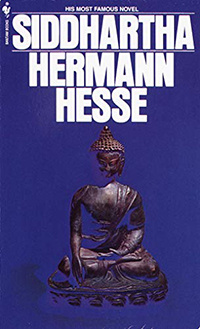
So hyper-oxygenate is you fill up all of your cells with lots of oxygen so that you can hold your breath for 2 ½ minutes. That’s the Wim Hof Method. The opposite is also very beneficial to your health, which is to essentially breathe out everything with pressure. Instead of just like [breathes out], you essentially shush as if you’re in a library, go shh.
That diaphragmatic pressure pushes all of the air out, hypo-oxygenates, so it’s not there. All the oxygen is out, then you hold, and then you quickly breathe in through the nose. Then you hold and then you do this exercise with your hands pushing against each other. Then you push out. You’re essentially still pretending that there is a wall, kind of a circular wall you’re pushing against.
Holding your breath the whole time, bring it back, keep pushing, then against the two hands, and keep holding until you can’t hold any longer. Then bow and breathe out with the shh for six seconds. You only need to do this a few times. I’m oversimplifying it. It’s a little bit more than that, but it’s not super complicated. There are some videos on Vibravision’s channel on YouTube.
I have a friend who had a really incredible experience just doing this exercise a few times. Just this week, it was an award-winning mastermind called METAL. This guy does not have the use of his right arm. After this, he was able to move his right arm to some degree. He’s like, “I haven’t had that happen in years.”
JF: I’ve heard of wild stuff happening after. That one sounds like it’s a movement. You’re also obviously getting your nervous system chilled out in a way that’s probably hasn’t been done.
Yeah. This definitely takes you into parasympathetic, and it does something to your nervous system. Very profound, very different from Wim Hof because Wim Hof, as I said, hyper oxygenates so that you can hold your breath for 2 ½ minutes but you are supersaturated.
JF: I’ve actually done a lot of hypo-oxygenated type work like that. I just haven’t, I guess, dubbed it as such, but it’s interesting. You have a different feeling when you push down with your diaphragm. I think in that sense, it might even be a fascia thing like if you’re moving your hands around, for him specifically.
Yeah, I think it comes from India that particular technique. I don’t remember the name of it, but yeah, this is just such a fascinating world.
JF: It’s like an endless well.
It is. The rabbit holes go very deep, very deep.

So breathing is a big important part of you guys’ world, and I really do like that. Is there any other modality that you want to bring up that is health-related, maybe a biohack of some sort that you guys love?
JF: About our device out there.
MW: It’s up to you.
JF: We’ve been experimenting more so with tobacco and cannabis for certain things, but there’s a lot of different ways to consume that and preferably very clean and very raw. That’s actually some things we’ve used before interviews in some scenarios as tobacco will give that very awakened heightened state, but without the fogginess, and it’s very clean.
We’ve been learning a lot from our friend, Angelo Sisco at Alpha Hippie. Awesome, deep wisdom and he has taught us so we actually use a volcano, which is an inexpensive device, but it was created for cancer patients about 50 years ago so they can consume cannabis to help with their treatments and side effects, the symptoms that come along with chemo.
The beautiful thing is that you can vaporize anything. There are qualities to things like tobacco, or cannabis, or even others. I mean, there’s sage, but there are different energies that go along with each one of these plants. This is where I’m not super deep with all that. When it comes to tobacco, it’s more of a masculine energy. If you think about putting that as a tool and thinking. Maybe a line of questioning. It keeps you on point a little more than something.
If you’re not priming your mind, it’s kind of a way along with breathing. A stimulant, like coffee, could help. But honestly, it hasn’t really been a big tool for us. It’s layered in there, but things like that we’ve collected. I want to hear your perspective.
We’re starting to try to do more with our show to help destigmatize some of these topics.
MW: A lot of these things are things that I feel are fairly stigmatized topics that everybody goes, oh no, these guys smoke tobacco and cannabis. But we legitimately use it as a tool.
JF: It’s not smoke.
MW: It’s not smoke. It’s the vapor. We use tobacco because tobacco really gets you focused. That little teeny bit of nicotine is a great nootropic. It’s so stigmatized because cigarettes are absolutely horrible for you. All the ways that you’re used to hearing people consume tobacco are just horrible for you. But if you vaporize it in this way, it’s a very clean way of doing it. You get a nice little short-lived nootropic. It really, really helps with focus.
Then when we need to get into this creative mode. We need to figure out some interesting topics to talk about on the podcast. Let’s try to think of some unique marketing strategies that nobody else is doing. When we need to get in that creative mode, we’ll mix in a little bit of cannabis with it to get into that creative mode.
JF: It’s more of a 50-50 blend in that case.
MW: We use it in a very methodical tool way. One of the things we’re starting to try to do with our show more is help destigmatize some of these topics. There’s obviously that history there and the perception of how people see that stuff. I think that’s something that’s really interesting that we’re experimenting with more and more of these days that you’re not really hearing a lot of people publicly talk about.
JF: This relates to some topics on our podcast. We’ve had folks like Mike Dillard come on our show, who is a very prolific internet marketer and does a bunch of stuff. He had some brain things happening, a lot of issues happening. He used plant medicines for a lot of it. He still does, I believe, and he actually talked about that in our podcast. It was cool to hear someone like him who went through a very traumatic brain injury in his own way. I believe it was mold that was actually what was triggering everything.
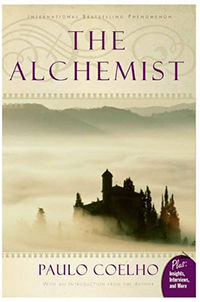
Like Dave Asprey.
JF: Yeah, exactly. Mike, it’s worth a listen to that episode specifically because he deep dove into how his brain works and how some of these plant medicines and tools like MDMA, psychedelics as well. He talked about that. That was one of the first times.
MW: We’d heard people openly talk about it without the stigma attached.
JF: Yeah, like a very prolific name in the industry. We’ve had other episodes. I’ve done Ayahuasca. We’ve done psychedelic mushrooms, always with the sense, with intention.
MW: And with a guide.
JF: A guide, a shaman. I described my Ayahuasca ceremony on our podcast. This was like, four years ago. That was scary as hell to talk about. I don’t know how this is going to land. But we had so many people light up and be like, wow, okay. Thank you for sharing that because that helps me see this in a better light as a tool. It’s not so scary, even though it can be. But it’s as you said, same with mushrooms. There’s a lot of people that we know that might not be talking about they are microdosing or they’re doing these ceremonies as a tool.
Tim Ferriss does this often as a reset. Joe Rogan, someone who’s really cerebral (I think) who’s driven, who’s looking for the next door that might not be so obvious. These allow those things to open. There is a lot of stigma that I think that we’re trying to put out there lightly. This is actually the first time we’re really deep-diving tobacco in this volcano specifically, but it’s a common tool that’s working well.
MW: Yeah. For me, I’m also big, big, big on journaling. I journal everything. I’m very much a fan of David Allen and his getting things done methods of just getting it all out of your head. Even if you’re not going to do anything with it, just unload constantly.
Have you had him on your podcast?
MW: We have had him on our podcast.
He’s been on mine too. He’s awesome.
MW: Yeah. So journaling has become a very, very, very big practice in my life. I just love to unload. I do that almost every single evening. I’m just getting thoughts out of my head on paper. It’s crazy how much better you sleep at night. It stops a lot of the wheels from spinning if you get it out on paper before you go to bed.
I don’t forget ideas. Often, I’ll have these late-night ideas, and my journal has it documented for me.
I don’t forget ideas. A lot of times I’ll have these late-night ideas and I’m like, oh, Joe is going to need to hear this. Well, my journal has it documented for me so I’ll have it ready when I see Joe next. I bring my journal to and from the office with me every day just in case there’s anything I want—Joe and I might get into a conversation and I might be like, “Dude, I was having this thought last night. It’s so crazy you brought this up,” and I’ll pull up my journal and read a passage from my journal to him. That’s been a big, big, big piece in my life as well.
Very cool. Now let’s circle back to plant medicine for a couple of more minutes and then we’ll go back to the journaling because I want to explore that as well some more. A couple of things that came to me that I think are worth discussing. One is this microdosing concept. I had Dennis Notten on this podcast several years ago now, but we talked about microdosing Ayahuasca. I, for the record, have not done Ayahuasca, have not done any drugs—nothing. Never smoked a cigarette even.
This is, I think, a potential game-changer for people who are suffering from anxiety, people who are dealing with terminal illnesses, et cetera. Microdosing something like Ayahuasca can be a game-changer. I think that’s an important concept..
JF: We’ve heard of microdosing psilocybin, LSD, cannabis, things like that, but this is the first time I think I’ve ever heard of somebody microdosing Ayahuasca. That’s an episode we’re going to have to go check out.
MW: I haven’t gone through a ceremony of Ayahuasca. I don’t know how that works, but I’m very curious. I’ll listen to that.
Yeah. He also does ceremonies. He and his wife are certified or whatever and are very good at it.
MW: I’m curious. From your perspective, having not done these things—I don’t know what the question is, but it’s really cool that you’re open to exploring these and you have a really good perception of them as tools and not as a stigma thing. Is it something that you think is part of your path or have you found other ways?
I don’t think it is part of my path. I’m not against it, but I’m very protective of my brain, so I just don’t want to put it at any risk. I know I’m being guided so I don’t worry about that anyway. One of my big things to work through in this lifetime, one of my Tikkun, which is a Hebrew term. It refers to your soul correction. I learned this in Kabbalah. You have a soul correction. Everybody else knows it. It’s like right in their faces, obvious to everyone but ourselves. Only, we, the person who can make the change, don’t see it. It’s very frustrating for everybody.
It’s fantastic that you’re open to exploring these, and you have an excellent perception of them as tools and not as a stigma thing.
So for me, it’s judgment. I’m very judgmental. I’m working very hard on this. I judge people a lot, but then when you judge you get judged. It’s like a tit for tat sort of. That’s how the universe works. I’m working on releasing that and not judging people. Even just noticing when I am from walking down the street and I notice that I’m judging somebody, I just say that it’s in my head. I’m judging. Or if I’m envying, coveting, or whatever, I just say to myself in my head I’m coveting. Pretty soon, after you do that enough times, you don’t do it anymore.
JF: I like it. It’s awareness and repetition. It’s a consistent reminder to yourself. We all have that. It’s the most frustrating thing. It’s nice to have either guides around your trusted folks or if you’re aware enough to notice these things. Typically it takes some external. I know that’s where Matt has really helped me in my journey and my wife. It’s really good to listen. There are probably patterns, hints, and clues given to all of us. Those are worth probably noting, maybe journaling on, and seeing if they actually ring true for us.
Once you get past this, it kind of relates a little bit to this concept I just glommed on to—the willing suspension of disbelief. If I disconnect from the judgment, I connect to the willing suspension of disbelief and I just remain open. Then I can learn of amazing modalities like Rick Simpson’s Oil, which we used on our cat who was dying of cancer. I think it eased her last few weeks.
It’s derived from cannabis. It’s got THC in it. In many states, you can’t get it. It can be a game-changer too. It’s something that a lot of people with cancer utilize.
JF: That’s huge.
I didn’t know about it. My wife, Orion, was researching what to do to help ease our cat’s last few weeks. It really helped.
JF: We all need that easing, you know. That’s cool. Rick Simpson Oil, I’ll check that out.
There are so many modalities and things out there. It’s just not knowing what you want to protect. What’s a hard no, maybe at this time? Totally cool. That’s why I think there are so many modes. Breathwork alone can be so spiritual. I’ve connected with almost similar to Ayahuasca, just through doing some of this breathwork. It can be unexpected. Doing a 20-minute breathwork session and I’m like, whoa, what just happened there? Then massive insights, flood of insights.
MW: Yeah, and one thing I found about the sort of psychedelic experiences that we’ve had too is that you can actually recreate them in the future without the psychedelics if you could put yourself in a similar state. We did a guided ceremony with a couple of other people several years ago, there was a soundtrack playing very specific songs. I’m sure even to you to this day if you heard that song you’d be like, that was part of our experience.
JF: I got the whale sounds in my head right now.
Now, I can sit down, close my eyes, put on some headphones, listen to the same music that was playing when we were in that state, and get myself pretty close to back in that same state.
MW: Now, I can go and sit down, close my eyes, put on some headphones, listen to the same music that was playing when we were in that state, and get myself pretty close to back in that same state.
JF: If you layered in breathwork or you start breathing into the beats or doing your own just whatever feels right in the moment, but you’re still trained in, you would totally go there 100% in some way.
My wife’s had out-of-body experience-type scenarios just breathing, doing breathwork. I’ve had incredible LSD trip type of experiences just by getting touched on the head by a monk, getting a Diksha.
JF: You said that last time. That was fascinating.
It’s just this reality that we experienced is so incredible.
JF: That’s the thing. There are a lot of things and this is where I don’t think most people have ever experienced. There are fractals and different things that you see and notice when you are, I guess, elevated in a different height of awareness. It can come through weed. It can come through tobacco, maybe not. I don’t know. But definitely breathwork, psychedelics, whatever it might be. You start down this like, whoa, hold on. It might not be visual, but a feeling like I’ve been missing like 80%, 90%, or more of what’s around me right now.
It can be visual. You can get visions just by doing breathwork. You can get visions just by asking, praying for, and no substance required. Not that substances aren’t potentially helpful. The right ones at the right times with the right guidance.
Nicotine is something that biohackers use. Dave Asprey uses it and talks about it. Again, it’s being open-minded and not judging. Certain modalities will present themselves to you that you’ll gravitate to and others you won’t. But perhaps somebody elsewhere will and you’ll help them immensely just by being open-minded and then sharing that podcast episode or whatever that talks about that modality that you’re never going to try.
JF: Yeah and that judgment factors probably what’s held us back a little bit to be honest, like the fear of being judged. Honestly, I didn’t feel judged by you when we’re talking about it, so thank you, my man. I think you’ve been doing the work really well there.
Awesome. Everything unfolds as it’s meant to. I’ve gotten to where I’m at in this journey with a whole lot of hard work. I’m working on my judgment. I’m working on my own Tikkun, as we all are. We’re all working on this together.
JF: It’s a journey.

Yeah, it’s always the journey that’s everything. Let’s go back to journaling for a minute or two. I know, Matt, that’s super important to you. I’m curious, have you been journaling gratitudes for things that you don’t want, you don’t like, or that you’ve faced in terms of challenges that have been difficulties or things that you wouldn’t normally offer gratitude for?
MW: Yeah. I have in the past. I don’t think I’m super methodical with my journaling. My journaling is just a notebook. It’s almost like a no-rules notebook. Sometimes my journal entries are bullet points. Sometimes my journal entries are paragraphs. Sometimes my journal entries are a single sentence that just really resonated with me that day. There’s not a ton of structure around it, but I do try to put some gratitude elements in there. But it’s usually the stereotypical stuff. I’m grateful for my family, healthy kids, a great business, and a great business partner. Things like that. I have done that.
But there was this exercise that James Altucher taught us about thinking of things that you wouldn’t normally find gratitude for and then figure out reasons to have gratitude towards them. The example that he gave was he was in a New York apartment and he was grateful for all the noisiness that was going on outside of his window because it means he has a roof over his head. It means that he has a place that he can record. It means that he’s in a city that’s constantly trying to improve itself.
There’s all of this gratitude attached to the thing that was bugging the heck out of him. I did that maybe for a few journal entries, but I struggled with it if I’m honest. I struggled to find gratitude in the negative things in that way on any routine basis.
That’s so cool that you took something that you learned from one of your guests and you implemented it in a way that was so profound. That’s to be commended because oftentimes, we’re just handed this amazing prize and we don’t even realize it. Like in that episode I recorded a couple of days ago with Kurtis. He mentioned that thing about making God your business partner. That could have just gone right in one ear and out the other.
There’s the blessing that we are getting all of these inputs, these ideas, these ways of being, and these things that we can try.
MW: I’d say there’s a blessing and a curse to that. There’s the blessing that we are getting all of these inputs, these ideas, these ways of being, and these things that we can try. I really love that, but at the same time, we’re doing this eight or nine times a month. There’s a lot of input coming at us that we want to try that we may not necessarily be able to try or sometimes we try to do it all.
I think there is a double-edged sword to this gift of being able to podcast and chat with all these people all the time. We learn so much and we have so many things that we have implemented in our business, but then there’s also that side of it of overwhelm. There are so many things that we could be doing.
We have somebody on that’s saying, you’re not doing organic social media? Why are you not doing organic social media? That’s so important to be doing organic social media. It’s like, well, we’re running Facebook ads. We’re running Google ads. We have a YouTube channel. We’re running a podcast. We put on masterminded. Is organic social media going to move the needle as much as all these other things that I’m putting all my focus on?
We do have that battle that happens with the show as well of which of these elements should we try to integrate and which of these ones are just great that we’re giving it to the audience but maybe it’s not necessarily something we’re going to integrate into our own business. I love what we do with the podcast, but there is the yin and yang of it.
It sounds a little bit like FOMO.
MW: Yeah. There are definitely some elements of that for sure.
JF: The way that we combat a little of that overwhelm or potential overwhelm because that did strike us for the first probably few years of the show. We started adding an outro to our show where we can discuss what we thought were brilliant points. Maybe a tactic, a mental model, or something we can try. It doesn’t mean we’re going to do it, but at least we’re going to give gratitude and highlight it a little bit more with our own perspective.
It doesn’t mean we’re going to do it, but at least we’re going to give gratitude and highlight it a little bit more with our perspective.
It almost feels like we are, I guess we’re getting that dopamine release a little bit of like, hey, let’s explain it of how we would do this in our business, for ourselves, or how others could. From there maybe it trickles into action if it fits. But that’s actually helped us, that little debrief right after an episode is the outro of our thoughts of what we just heard and learned from some expert we brought on.
That’s a cool way to do it.
MW: It’s almost like an audio version of journaling and get it back out of our head.
JF: It is, totally.
Also, you talked earlier about the white space. We haven’t talked about this yet, but I know that you have the no-worky Wednesdays where in the middle of the week and take a day off every week, which I love. That gives you more white space to think open-ended, not have so much of the FOMO to have to implement. You get to do this. You don’t have to do it. It’s not a to-do list. It’s a get-to-do list. If you don’t do it, life goes on. If you’re really called to do it, it’ll show up another way if you ignore the hint the first time.
JF: True.
I remember opening books randomly and getting exactly the message I needed, attending part of a virtual weekend workshop over Zoom or something that I just hopped in right at the critical moment where I got exactly the thing I needed. It’s okay that I missed the first day and a half or whatever. I didn’t stress over it. I didn’t even review the recording because I knew that I’m being guided. This is just meant for me.
When I show up, the message appears. When you leap and that appears. Well, when you show up for the part of the mastermind you can make, the part of the seminar you can make, or open the book to the page that you can have the time to read for a couple of minutes even though you don’t have time to read that whole book, you get exactly what you need.
JF: Since we chatted last time together a couple of weeks ago, a few weeks ago, I’ve actually done that whole book strategy because I have just piles of books. For the longest time, it’s been a little guilt. A friend of mine sent me their book. I haven’t even opened it yet. There’s a Perry Marshall book he sent our way. I’m like, I have not even read it yet. It’s not even released. But I’ve opened a few pages of random books like that, okay. That’s a little nugget.
That Perry Marshall book is really fabulous. I have not read more than 15 pages of it so far, but I had him on this podcast. What an incredibly deep conversation. That guy is—
MW: Called letters from the head office, right?
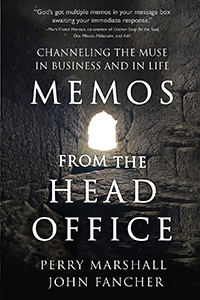
Yes, Memos from the Head Office. The head office being upstairs. High in the heavens and you can get these without a doubt signs and messages and so forth. We all can. We’re all psychic. It’s so powerful when you open yourself up to that willing suspension of disbelief.
We had a great conversation about that. He’s such a well-respected marketer, not thought of as a particularly spiritual guru type guy. He’s putting himself out there. He’s willing to take the arrows because somebody’s got to do it. Somebody’s got to blaze the trail. If you get targeted, you get targeted. But it’s meant to happen and if not you, then who? If not now, then when?
MW: Yeah. Definitely follow Perry, everyone listening. If you don’t know that 80/20 stuff. Because we’ve had super deep conversations in person. The science that he goes into, he’s also doing a whole bunch of science stuff that I won’t say anymore because I don’t know how secret that is. But he’s a deep thinker. Hours will fly by.
Well, in his 80/20 book, he talks about the 80/20 Rule being fractal, which is brilliant. What an insight.
MW: I remember that actually. We’re at a seminar. It was the Rosetta Stone seminar maybe two years ago in Chicago and he was explaining that. I swear we were not on psychedelics. I remember looking at the trees because he kept referencing fractals and looking at these beautiful green massive trees in Chicago. It started to feel a little psychedelic as he was explaining it because you start to see the patterns and fractals. They’re everywhere if you start to notice
The 80/20 Rule is 80% of the value you get is from 20% the effort or whatever.
MW: Energy or whatever.
But then fractal of that, the 80/20 of 80/20 is, what is it 4% generates, is it 54% or 64% of the value?
MW: I don’t know. He gets deep into the details there. But it starts getting exponentially stronger and more, but I guess condensed in a way.
Yeah, really cool.
MW: Yeah. It’s never-ending.
Journaling can help in sleeping better. It stops a lot of the wheels from spinning if thoughts are unloaded out on paper before going to bed. Click To TweetIf you focus on whatever that 4% is and you get the majority of the value from that, that is even better than focusing on the 20% to get the 80%. Super cool. I know we’re getting close to time, so let’s get into a lightning round here. What is the biggest OKR, objective, goal post, or metric of success that you’re heading towards right now?
JF: I feel like it’s around our podcast and it’s around maybe—we’re building a media site, more of a platform where we want to integrate partners and build out a bigger thing than just ourselves. Would you say that there’s a specific metric that we’ve landed on or something that?
MW: I mean we’re not as focused on the numbers, as a lot of direct response businesses are. We’re very focused on the message and the brand awareness. I guess the reach is the big thing that we’re going for. We’re looking for more people listening to the podcast and more people watching the YouTube channel. We’re trying to get the attention, but we’re a little less focused on financial, email lists, or those kinds of metrics that you’re so used to hearing all of the various direct response marketers in our industry talk about.
JF: I was going to say, we do have a couple actually. I would say 100,000 downloads a month on the podcast, we are close, but we want to get there. That’s been a goal post
That’s an impressive number. Very good. Congrats.
JF: Well, we’re not there yet, but we will be very soon.
Your future self I’m congratulating.
We’re trying to get the attention, but we’re a little less focused on financials, email lists, or those kinds of metrics.
JF: Yes. Thank you. But YouTube, we are doing a bigger push there. The numbers, if you go there now, they’re not impressive. But it’s okay. We’re laying the foundation. We’re dialing in the systems, the editors to make it engaging. We’re studying a ton of the creators and how they keep engagement. We want to break the 1000 subscriber mark. We’re like 50 people away, maybe 100, We’re close. But it’s almost one of those things where like, how the hell have we not hit 1000 yet?
MW: Yeah. The YouTube channel is six months old and I think we’re disappointed with ourselves that we haven’t broken 1000.
JF: It’s given us a runway of time to figure it out before more people see it. We’ve been nudging towards that number, so I’d say 1000, that opens up the ability for us to do a ton on that platform.
Right. Monetization and all that
MW: Tons of stuff.
Cool. Okay. What would you say each of your unique ability is? Unique ability, I’m using that term deliberately which comes from Dan Sullivan and his whole strategic coach methodology. What’s your unique ability, Joe and then you Matt?
JF: Mine—and I’ve been told this and now it’s true, it’s got to be—is that I just bring a spirit of fun to an environment, a situation, and to a person. It’s almost like it’s not quantifiable, so I think it’s always been difficult for me to see that but others see that. When they say it, I’m like, okay. Being told that I’m extremely approachable, that I actually put the attention in someone, I actually follow through with what I do, and I’m fun to work with. I feel like that presents a lot of great opportunities in my life but also our business.
MW: Yeah. I would say Joe’s superpower is this ability to build instant rapport with people. He builds rapport at such a rapid rate with people that I’ve never seen before. He meets somebody and the other person is like, did we just become best friends?
Joe’s superpower is this ability to build instant rapport with people.
JF: It does happen often. It is a little interesting, but it’s fun.
MW: I’d say my superpower is I’m somebody that’s constantly seeking shortcuts, how can I cut down the time it takes to do stuff. I’m a very systems guy. I feel like I’m pretty proficient at looking at other people’s businesses, systems, daily things that they do and go, here’s how you can optimize that and probably cut the time in half. For me, I’m very, very systems-oriented. How do I condense the time that things take in business?
JF: Now I’m going to give back some credit to you on what you’re saying because here’s a distinction that Matt and I were talking about around his systems-oriented brain. The way you look at systems is super unique. I didn’t notice this for a long time. But you establish a system so you can have the most freedom in your life if possible. Really, you don’t want to be the systems guy wrapped up in systems all day. You just want to create some of these things so you can screw around and do whatever you want for the rest of the time.
MW: I’m trying to buy my time back by using systems.
JF: Automations and routines. He’s the best.
You’re an outcome guy. You’re a systems guy with an outcome. Not just for the sake of systems. Okay, last quick question, your most favorite, most impactful book you’ve ever read. I have a feeling which book I’m going to hear from you both, but go ahead.
JF: You go first, Matt.
MW: Well, it’s tough because there are so many books that come to mind. I think the book that you’re probably expecting is Rich Dad Poor Dad because that was the book that was the catalyst. The pivotal book for us that took us down this rabbit hole of entrepreneur
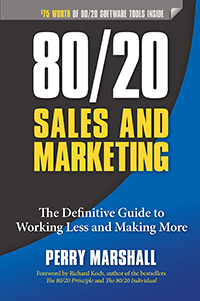
More recently, I read a book called The Psychology Of Money that just changed my perspective in so many ways on my relationship with money, how I see getting money, and how I see spending money. There is the old guard and the new guard. The old guard, Rich Dad, Poor Dad got us into this, but the Psychology of Money has probably had a bigger impact on me more recently.
I really like the subtitles there, “Timeless Lessons On Wealth, Greed, and Happiness.” That sounds intriguing.
MW: It’s a great book. I’ve recommended that book to more people than probably any book I’ve ever recommended to people.
Nice one. Thank you, Matt. How about you, Joe.
JF: Me and books, I’ve always been kind of the picker up books. I pick what I need and it’s not as deliberate as turning to a page and there you have it kind of thing. But the books that stand out, Psychology Of Money was definitely game-changing in terms of perspective. The goal post is actually a term that he uses a lot, the one that you used earlier. I would recommend that. That’s very high on my list.
I like books that take me on a journey, but also teach lessons along the way. Maybe it’s a little fiction, maybe not. Books like Siddhartha just show, oh, okay. There are ways to look at things and do things slightly differently. I’m not really a business-oriented book guy. I want to expand my mind a little bit. Siddhartha is a good one.
MW: I feel like you referenced The Alchemist a lot too.
JF: The Alchemist is the next one. I mean, they both take you on a journey. There are little life lessons kind of sprinkled throughout.
Have you read the Autobiography of a Yogi?
JF: No.

Add that to your list.
JF: I shall. Thank you.
Also add Ho’oponopono: Your Path to True Forgiveness, the one by Matt James, and guess who recommended that one? Mutual friend.
JF: Cialdini.
Begins with a J.
MW: Jay Abraham?
Good guess, but no.
MW: I’m thinking of other J’s. Local guys, San Diego?
The first name begins with the letter J.
MW: Joe.
JF: For some reason, I think of Jeremy Stallings.
Nope. James Schramko.
MW: Oh my gosh, Schramko. Say it one more time, Your Path to…?
Ho’oponopono: Your Path to True Forgiveness.
MW: Ho’oponopono: Your Path to True Forgiveness. Got it. James Schramko. He is a wise man.
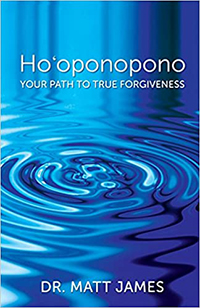
He is a wise man.
JF: We know a lot of J folks.
Yes, you do. You guys know everybody. Okay, so how do we get our listener or viewer to the next step to potentially work with you and join your mastermind, get some of your training on podcasting and all the other cool stuff that you teach, or to just listen to your podcast?
MW: Yeah I would say, we’ve got hustleandflowchart.com or hustleandflowchart.tv if you prefer the video version, so dot-com will take you to our show notes where you can listen to the audio. Hustleandflowchart.tv will take you where you can listen to the video. Those are our big milestones, our key metrics, if you will, are in those areas.
If anybody is interested in going down the podcasting rabbit hole, we have a course called PodHacker, which is basically how to build, grow, scale, and build a community around your podcast with a heavy focus on growth hacks. The strategies people aren’t talking about.
We’re not there saying, make a podcast and then share it on Facebook and that’s how you’re going to grow it. No, we’re talking about the stuff that others aren’t talking about. We’re talking about paid strategies and whose palms you can grease to get some additional awareness and things like that. Really interesting topics that others aren’t talking about in the podcasting world that are the real ways that people are moving the needle in a podcast. That’s available over at podhacker.com.
Bribery, okay. That’s a powerful strategy I hadn’t considered.
JF: It can be if you use it properly.
Awesome. Well, thank you both. Joe, Matt, you guys are amazing. I always love talking with you and shooting the breeze, sharing tips, and all that. Thank you for doing that for my audience. We’ll catch you, listener, on the next episode. I’m your host, Stephan Spencer, signing off.
Important Links
Facebook – Hustle & Flowchart
Youtube – Hustle & Flowchart
Joe Fier
Facebook – Joe Fier
Instagram – Joe Fier
Twitter – Joe Fier
LinkedIn – Joe Fier
Matt Wolfe
Facebook – Matt Wolfe
Instagram – Matt Wolfe
Twitter – Matt Wolfe
LinkedIn – Matt Wolfe
YouTube – Matt Wolfe
80/20 Sales and Marketing
Autobiography of a Yogi
Ho’oponopono
Memos from the Head
Rich Dad Poor Dad
Siddhartha
The Alchemist
The Psychology Of Money
The Tipping Point
Anne Marie Pizarro – previous episode
David Allen – previous episode
Dennis Notten – previous episode
Kurtis Thomas – previous episode
Perry Marshall – previous episode
Brian Kurtz – MS previous episode
Angelo Sisco
Anne Marie Pizarro
Brian Kurtz
Dan Sullivan
Dave Asprey
David Allen
David Allen– Hustle & Flowchart Episode
Dr. Robert Cialdini
Gary Vaynerchuk
James Altucher
James Schramko
Jay Abraham
Joe Rogan
Kurtis Thomas
Laird Hamilton
Malcolm Gladwell
Matt James
Mike Dillard
Mike Dillard – Hustle & Flowchart Episode
Niraj Naik
Orion Talmay
Perry Marshall
Scott Harrison
Tim Ferriss
Alpha Hippie
Charity Water
Marketing Speak
METAL
Naam Yoga
PodHacker
Titans Mastermind
Vibravision
Vibravision – Youtube
Akashic records
CrossFit
Kabbalah
Rick Simpson’s Oil
Soma breathing
Tikkun
Wim Hof breathing
Checklist of Actionable Takeaways










 About Joe Fier & Matt Wolfe
About Joe Fier & Matt Wolfe
Joe Fier is an American entrepreneur, podcaster, investor, marketer, mastermind host, speaker and author. He is best known for his podcast, Hustle and Flowchart, co-hosted with Matt Wolfe. Fier began his career in business consulting and video sales in the San Diego area.
Matt Wolfe is an American entrepreneur, podcaster, blogger, affiliate marketer, mastermind host, speaker, and author. He is best known for his podcast, Hustle and Flowchart, co-hosted with Joe Fier. Wolfe began his career in building WordPress websites and blogging in the San Diego area.
Disclaimer: The medical, fitness, psychological, mindset, lifestyle, and nutritional information provided on this website and through any materials, downloads, videos, webinars, podcasts, or emails is not intended to be a substitute for professional medical/fitness/nutritional advice, diagnoses, or treatment. Always seek the help of your physician, psychologist, psychiatrist, therapist, certified trainer, or dietitian with any questions regarding starting any new programs or treatments, or stopping any current programs or treatments. This website is for information purposes only, and the creators and editors, including Stephan Spencer, accept no liability for any injury or illness arising out of the use of the material contained herein, and make no warranty, express or implied, with respect to the contents of this website and affiliated materials.
LOVED THIS EPISODE
Please consider leaving me a review with Apple, Google or Spotify! It'll help folks discover this show and hopefully we can change more lives!
Rate and Review







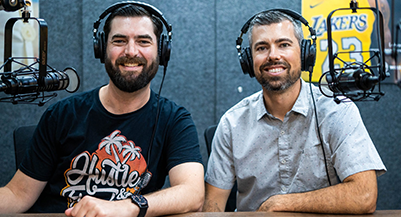
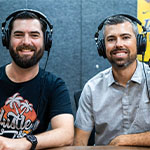 About Joe Fier & Matt Wolfe
About Joe Fier & Matt Wolfe